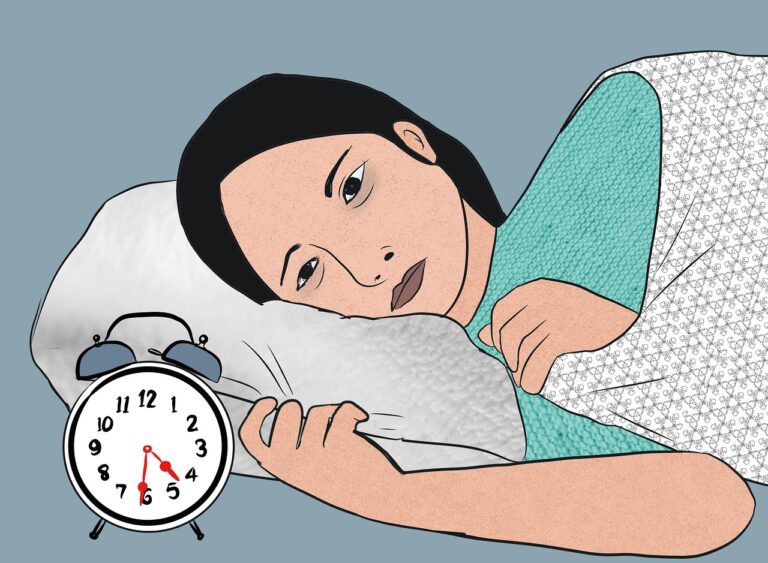What Causes Apnea?

Uncovering the reasons behind sleep apnea helps you understand this often troubling condition. Apnea, in most cases, is caused by the relaxation of throat muscles, leading to obstructive sleep apnea, or due to a lack of proper signals from the brain in central sleep apnea. Factors like obesity, genetics, and anatomical differences can notably heighten your risk. At the Vector Sleep Diagnostic Center, led by the highly qualified Dr. Dmitriy Kolesnik, you’re not just another patient—you’re part of a compassionate journey towards better sleep. Dr. Kolesnik’s extensive experience and commitment to both academic and clinical excellence ensure that you’re in the best hands, whether you’re getting a specialized evaluation or receiving comprehensive treatment. Contact us today to take your first step toward understanding and managing sleep apnea for a more restful night’s sleep. Have you ever wondered why you find yourself gasping for air during the night or why you wake up feeling completely unrested? If so, you might be grappling with a condition known as apnea. Apnea can be more than just a nighttime inconvenience; it can affect your overall health and quality of life. In this article, we will delve into the fundamental question, “What causes apnea?” and explore ways to diagnose and manage this common but often misunderstood sleep disorder. Additionally, we’ll introduce you to the Vector Sleep Diagnostic Center, a trusted partner in sleep health.
What Causes Apnea?
Apnea, characterized by interruptions in breathing during sleep, can arise from various underlying causes. Understanding these causes can help you identify potential risk factors and seek appropriate treatment.
Obstructive Sleep Apnea (OSA)
Obstructive Sleep Apnea (OSA) is the most common type of apnea. It occurs when the muscles at the back of your throat relax excessively, leading to a temporary blockage of your airway. These interruptions cause you to wake up momentarily, disrupting your sleep cycle.
Causes of OSA:
- Obesity: Excess weight can increase fat deposits around the neck and obstruct breathing pathways.
- Anatomical Features: Certain physical characteristics like a thick neck, narrow throat, or enlarged tonsils can predispose you to OSA.
- Age: The risk increases with age as muscle tone decreases.
- Genetics: A family history of apnea can make you more susceptible.
- Lifestyle Factors: Alcohol, smoking, and sedative use can worsen OSA by relaxing throat muscles too much.
- Nasal Congestion: Chronic nasal congestion can restrict airflow and contribute to apnea.
Central Sleep Apnea (CSA)
Central Sleep Apnea (CSA) is less common than OSA and is primarily related to a failure in the communication between the brain and the muscles that control breathing. In CSA, the brain doesn’t send the proper signals to the breathing muscles, resulting in interrupted sleep.
Causes of CSA:
- Heart Failure: Conditions like congestive heart failure can increase the risk.
- Stroke: Brain damage from a stroke can affect breathing regulation.
- High Altitude: Staying at high altitudes can cause CSA due to reduced oxygen levels.
- Opioid Use: These medications can disrupt the brain’s ability to regulate breathing.
- Aging: Similar to OSA, aging can affect the brain’s respiratory control mechanisms.
Mixed Sleep Apnea (MSA)
Mixed Sleep Apnea (MSA) is a combination of OSA and CSA. Episodes of MSA include both obstructive and central events, making it more complex to diagnose and treat.
Causes of MSA: The causes are generally a combination of the factors listed under OSA and CSA. Understanding MSA requires a comprehensive evaluation to identify all contributing elements.
Complex Sleep Apnea Syndrome (CompSAS)
Complex Sleep Apnea Syndrome (CompSAS) occurs when someone being treated for OSA with positive airway pressure (PAP) therapy develops symptoms of CSA. It’s a relatively rare and sophisticated form of apnea.
Causes of CompSAS:
- Treatment-Emergent CSA: This can develop during PAP therapy and is a subset of CSA.
- Underlying OSA Treatment: CompSAS can also emerge when OSA is adequately treated.
Other Contributing Factors
There are several other factors that can exacerbate sleep apnea. These include:
- Menopause: Hormonal changes in women can impact sleep quality and exacerbate apnea.
- Medications: Certain medications can relax the muscles too much, affecting airflow.
- Family History: Genetics play a role in the likelihood of developing apnea.
- Chronic Health Conditions: Diabetes, high blood pressure, and other chronic illnesses are associated with higher apnea risk.
- Lifestyle Choices: Diet, physical activity, and sleep habits can significantly influence sleep health.
Diagnosing Apnea
Recognizing the symptoms of apnea is the first step toward diagnosis. Common signs include:
- Loud snoring
- Episodes of stopped breathing observed by another person
- Gasping for air during sleep
- Waking with a dry mouth or sore throat
- Morning headaches
- Difficulty staying asleep (insomnia)
- Excessive daytime sleepiness (hypersomnia)
- Difficulty paying attention while awake
- Irritability
Diagnostic Methods
- Polysomnography: An overnight sleep study that records your breathing, brain waves, oxygen levels, and heart rate.
- Home Sleep Apnea Test (HSAT): A simplified test you can do at home that measures your blood oxygen level, airflow, and breathing patterns.
- Multiple Sleep Latency Test (MSLT): Often used to diagnose narcolepsy, it measures how quickly you fall asleep in a quiet environment during the day.
- Maintenance of Wakefulness Test (MWT): Evaluates your ability to stay awake and is often used for people in safety-sensitive jobs.
- Specialized Pediatric Sleep Studies: Designed for children to diagnose sleep apnea or other sleep disorders.
Understanding the results of these tests is crucial for properly diagnosing the type and severity of apnea, which will guide your treatment plan.
Managing and Treating Apnea
Vector Sleep Diagnostic Center: Your Partner in Sleep Health
If you’re struggling with apnea, seeking professional help can make a significant difference in your quality of life. Vector Sleep Diagnostic Center, led by the experienced Dr. Dmitriy Kolesnik, specializes in diagnosing and treating a wide array of sleep disorders, including apnea.
About Vector Sleep Diagnostic Center
Led by a Veteran Sleep Medicine Specialist
At Vector Sleep Diagnostic Center, our team is captained by the esteemed Dr. Dmitriy Kolesnik. With over two decades of medical experience, Dr. Kolesnik is board-certified by the American Board of Sleep Medicine, Psychiatry, and Neurology. He began his remarkable journey at St. Petersburg Medical School in Russia and continued to build his expertise upon relocating to New York in the early 1990s. His areas of specialization include not just Sleep Medicine but also Neurology.
Academic and Clinical Excellence
In addition to his extensive field experience, Dr. Kolesnik has been serving as a Clinical Instructor in Neurology at the Weill Medical College of Cornell University since 2004. This academic involvement enriches his approach to patient care by keeping him abreast of the latest research and treatment modalities.
A Legacy of Comprehensive Care
Dr. Kolesnik took on the role of Medical Director at Vector Sleep Diagnostic Center in 2009. Under his leadership, the center has thrived, embracing cutting-edge technologies and evidence-based practices to diagnose and treat a wide range of sleep disorders. Our staff members, like Dr. Kolesnik, are deeply committed to providing personalized, effective, and compassionate care to all patients.
Our Mission and Vision
We are committed to becoming the definitive resource for sleep health, guided by principles of ethical patient care and clinical innovation. Our goal is to provide unmatched patient support and diagnostic excellence for those who suffer from sleep disorders.
Contact Us Today
We invite you to experience the extraordinary level of care and expertise at Vector Sleep Diagnostic Center. Get in touch with us to schedule your initial consultation.
Why Choose Vector for Consultation and Education?
When you opt for consultation and education services at Vector, you’re placing your sleep health in the hands of board-certified sleep specialists equipped with the latest knowledge and technologies. We are committed to helping you identify, understand, and manage your sleep disorders for improved quality of life.
Services Offered at Vector Sleep Diagnostic Center
Comprehensive Sleep Apnea Care
At Vector Sleep Diagnostic Center, we specialize in diagnosing and treating sleep apnea to help you achieve a better night’s rest. Our comprehensive services include CPAP Titration and Durable Medical Equipment (DME) Setup, designed to give you the most effective treatment tailored to your specific needs.
Specialized Evaluations
Our specialized evaluations are meticulously designed to get to the root of your unique sleep problems, offering you the most targeted and effective treatment plans.
Insomnia Solutions
Insomnia can be a debilitating condition that seriously affects your quality of life. Our specialized evaluations and treatments are engineered to address the root causes of your insomnia, allowing you to finally enjoy restful nights.
Follow-Up and Continuous Care
At Vector Sleep Diagnostic Center, we believe that sleep health is a lifelong journey. Our follow-up and continuous care program is designed to provide you with a continuum of care, ensuring that your treatment remains effective and evolves with your needs.
Sleep Education: Empowering You for Lifelong Sleep Health
We believe that knowledge is power. Our sleep education program includes resources like interactive workshops, educational brochures, online modules, and one-on-one counseling with sleep specialists to address your specific sleep issues.
Sleep Studies
Vector Sleep Diagnostic Center offers an array of sleep study services aimed to diagnose and manage sleep disorders effectively. Our specialized approach ensures that you get the most accurate results, leading to a tailored treatment plan for your specific sleep issues.
Contact Information
Address: 26, 62-60 99th St, Rego Park, NY 11374
Phone: (718) 830-2800
Email: vectorsleep@gmail.com
In conclusion, apnea is a sleep disorder that can significantly impact your quality of life. Understanding its causes, symptoms, and treatment options is the first step towards better sleep health. If you suspect you may have apnea or any other sleep disorder, seeking professional diagnosis and treatment is crucial. Vector Sleep Diagnostic Center, led by Dr. Dmitriy Kolesnik, offers comprehensive and compassionate care to help you achieve a restful night’s sleep. Don’t hesitate to reach out and take the first step towards reclaiming your nights and your life.







